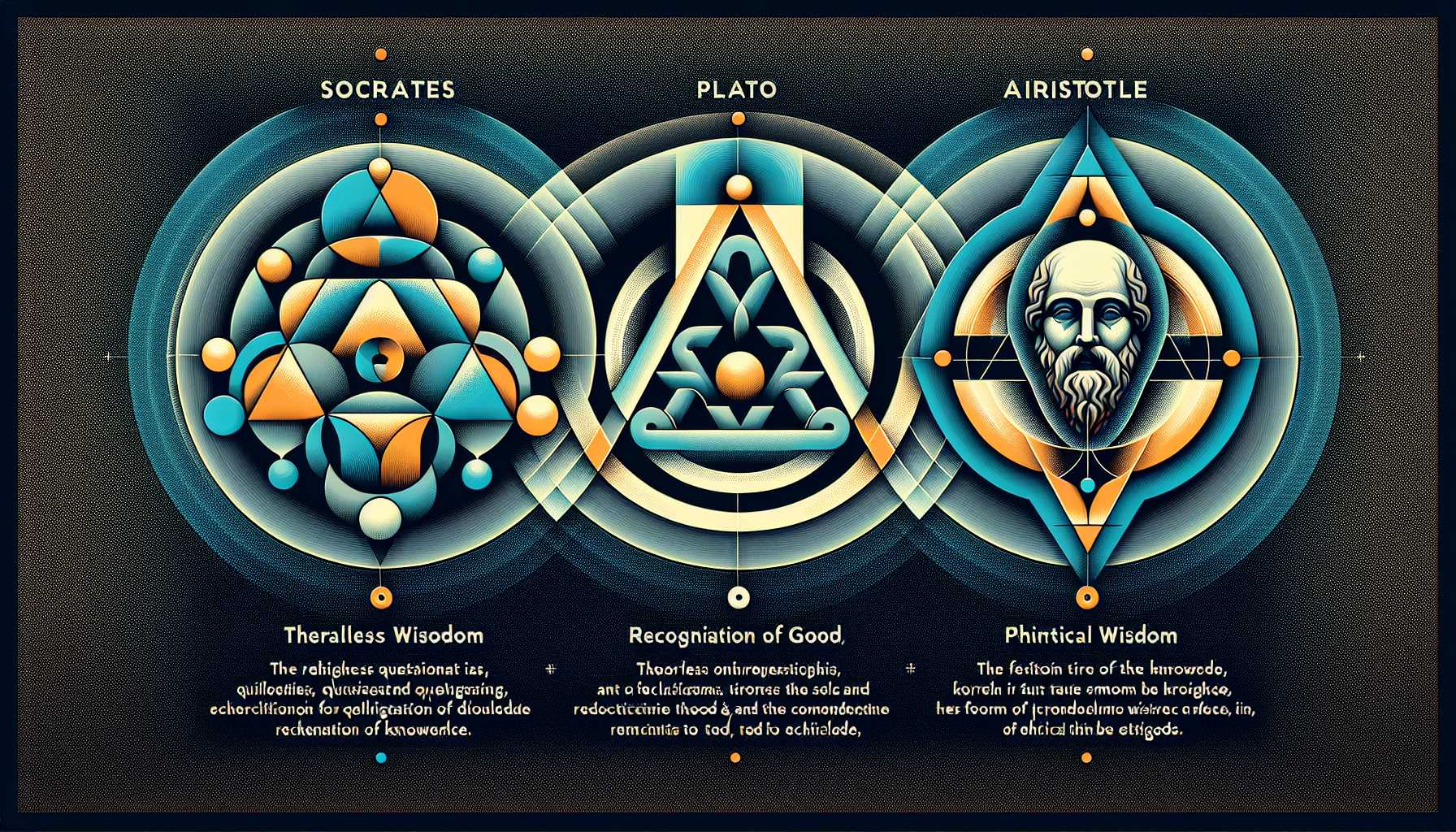
Wisdom Through the Ages Socrates Plato and Aristotles Insights
The article from the Wisdom Center at the University of Chicago discusses the perspectives of three foundational philosophers — Socrates, Plato, and Aristotle — on the concept of wisdom.
Het artikel van het Wisdom Center aan de Universiteit van Chicago bespreekt de perspectieven van drie fundamentele filosofen - Socrates, Plato en Aristoteles - over het concept van wijsheid.
Socrates is characterized by his approach of relentless questioning and dialogue, emphasizing that true wisdom involves recognizing one’s own ignorance.
Socrates wordt gekenmerkt door zijn benadering van onophoudelijk vragen stellen en dialoog, en benadrukt dat ware wijsheid inhoudt dat men zijn eigen onwetendheid erkent.
He viewed wisdom as a moral quality, deeply linked to how one lives and interacts with others, famously stating that 'the unexamined life is not worth living.'
Hij zag wijsheid als een morele kwaliteit, diep verbonden met hoe men leeft en interactie heeft met anderen, en zei beroemd dat 'het ononderzochte leven niet de moeite waard is om te leven.'
Plato, a student of Socrates, elaborates on the notion of wisdom in his works, especially in 'The Republic,' where he describes the philosopher-king as the ideal ruler.
Plato, een leerling van Socrates, geeft een uitgebreide uitleg over het begrip wijsheid in zijn werken, vooral in 'De Republiek', waar hij de filosoof-koning als de ideale heerser beschrijft.
For Plato, wisdom is an understanding of the Forms, particularly the Form of the Good, and is essential for achieving justice and knowledge.
Voor Plato is wijsheid een begrip van de Vormen, in het bijzonder de Vorm van het Goede, en is essentieel voor het bereiken van rechtvaardigheid en kennis.
He believed that wisdom has a rational foundation and is connected to a higher truth that transcends the material world.
Hij geloofde dat wijsheid een rationele basis heeft en verbonden is met een hogere waarheid die de materiële wereld overstijgt.
Aristotle, Plato's student, provides a more practical view of wisdom, classifying it into two types: theoretical wisdom (sophia) and practical wisdom (phronesis).
Aristoteles, de leerling van Plato, biedt een praktischere kijk op wijsheid, die hij in twee typen classificeert: theoretische wijsheid (sophia) en praktische wijsheid (phronesis).
He emphasizes that wisdom is not just about knowledge, but also about the ability to apply knowledge in practical situations.
Hij benadrukt dat wijsheid niet alleen gaat om kennis, maar ook om het vermogen om kennis toe te passen in praktische situaties.
Aristotle sees wisdom as a virtue, closely tied to ethical behavior, suggesting that a wise person is one who makes sound judgments and decisions that lead to a good life.
Aristoteles ziet wijsheid als een deugd, nauw verbonden met ethisch gedrag, en suggereert dat een wijs persoon degene is die gezonde oordelen en beslissingen maakt die leiden tot een goed leven.
Consequently, each philosopher offers unique insights into the nature of wisdom, reflecting their larger philosophical schools of thought.
Bijgevolg biedt elke filosoof unieke inzichten in de aard van wijsheid, die hun grotere filosofische denkscholen weerspiegelt.
Based on this article
